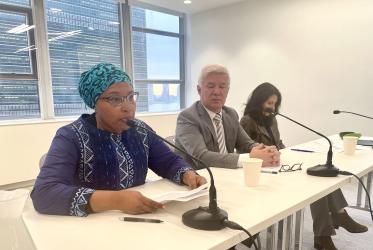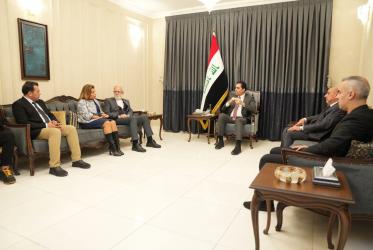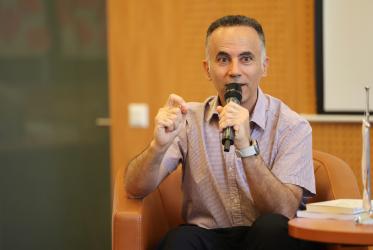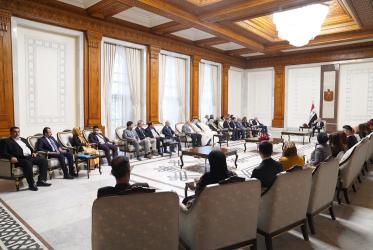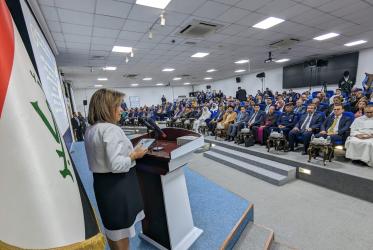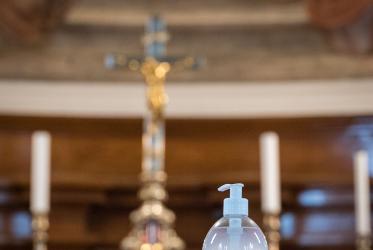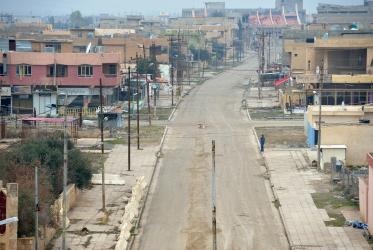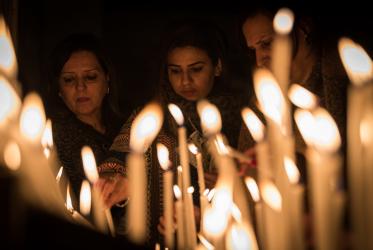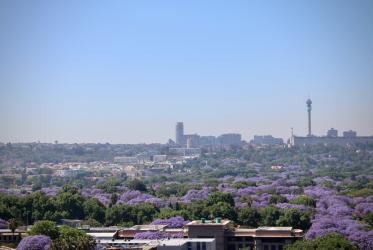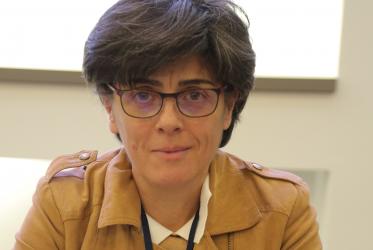Displaying 1 - 20 of 104
WCC continues to promote inclusive citizenship in Iraq
15 January 2024
Past massacres in the Middle East: “this should never be forgotten”
09 December 2021
Education has a crucial role for sustainable peace in Iraq
18 December 2020
Hope prevails in times of crisis in Lebanon
14 September 2020
Dr Saïd Ailabouni: God is on the side of rejected, oppressed, occupied
12 September 2019
